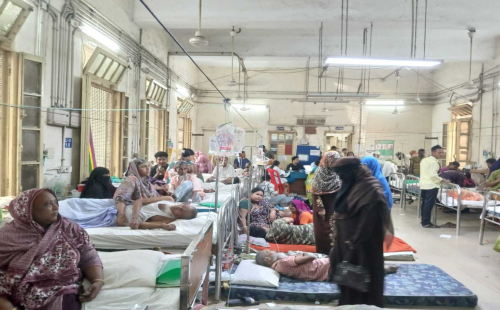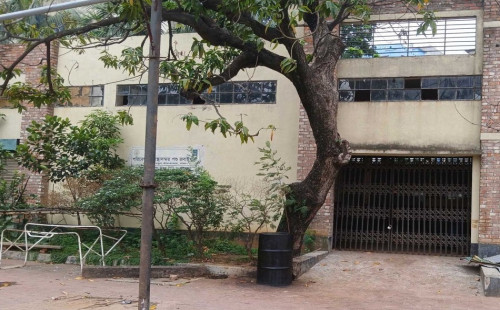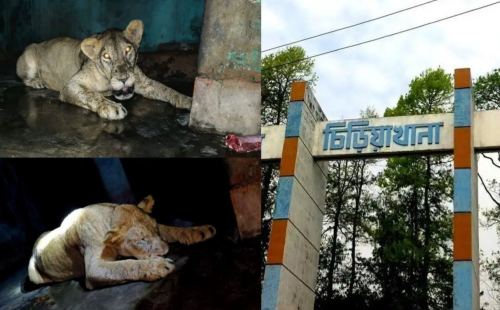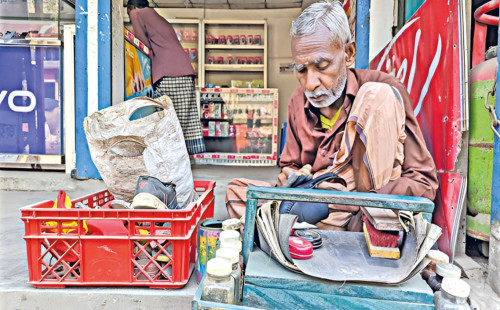First Security Islami Bank paying staff from depositors’ funds

The financial health of First Security Islami Bank PLC has
turned so dire that it is now paying staff salaries directly from depositors'
money, according to a Bangladesh Bank (BB) document.
The report
said that the commercial lender's operating income -- the revenue generated
from its core lending and investment activities -- was insufficient even to
meet payroll costs, let alone cover broader operating expenses.
The bank recorded a negative operating income of Tk 4,308 crore,
while its salary and allowance expenses stood at Tk 652 crore as of December
last year, according to the BB document.
This meant
staff pay was being drawn from depositors' funds, as per the central bank.
As of last
year, the bank posted a net loss of Tk 5,450.15 crore, while total operating
expenses stood at Tk 1,051.61 crore, the document showed.
Key
profitability indicators also fell, with return on assets dropping to negative
7.87 percent and return on equity to negative 451.12 percent.
On August
26, the central bank wrote to the bank's chairman, saying that a BB inspection
found "serious governance failure".
The letter
said investments were approved on the basis of fabricated documents and flawed
assessments, while due diligence was ignored.
The BB
letter identified controversial conglomerate S Alam Group as the ultimate
beneficial owner (UBO) of many investments, adding that the business group was
involved in fund embezzlement.
The UBO is
a natural person who ultimately owns or controls a legal entity, such as a
company, even if they are not the formal owner.
"In
short, the governance crisis of the bank appears to be epidemic, ranging from
regulatory violations, misuse of Islamic banking principles, falsification of
documents and embezzlement of funds, and concentration of control in the hands
of connected influential interest groups," the letter said.
The
central bank mentioned that repeated requests for repayment extensions and an
inability to settle borrowings in time by the commercial lender exposed its
severe liquidity shortfall.
BB said
that First Security Islami Bank consistently failed to meet minimum thresholds
for liquidity coverage and reserves. As of April this year, its liquidity
coverage ratio had collapsed to 10.53 percent, way below the required 100
percent.
An asset
quality review of First Security Islami Bank by an international audit firm
showed that the bank is facing a significant erosion of capital.
By
September last year, the bank faced a capital shortfall of Tk 53,890 crore,
with its capital to risk-weighted asset ratio (CRAR) falling to negative 605.80
percent, against the required 10 percent.
The review
also found that 99.5 percent of the bank's investments had become
non-performing.
As per the
BB report, a provisioning shortfall of Tk 56,805 crore is another indication of
weak credit management and poor risk controls.
Given
these findings, the BB questioned the bank's viability.
"In
order to protect depositors' interest, restore public confidence and preserve
financial stability, the best available rescue option is to go for strategic
regulatory intervention immediately," said BB, citing the Bank Company Act
1991 and the Bank Resolution Ordinance 2025.
The
troubled lender is surviving on Tk 15,361 crore in emergency liquidity
assistance, including Tk 14,311 crore directly from the BB and Tk 1,050 crore
from other banks against central bank guarantees.
Mohammed
Saiful Alam, founder and managing director of S Alam Group, was the chairman of
the First Security Islami Bank. He was removed last year after the political
changeover, with the BB forming a new board.
Mohammad
Abdul Mannan, former managing director of Islami Bank Bangladesh, was appointed
chairman of the scam-hit lender.
Contacted,
Mannan said, "The ailing condition of the bank is a reflection of massive
scams and loan irregularities in the bank. No banking was conducted here."
He cited a
separate audit showing that one individual alone withdrew Tk 38,000 crore,
against the bank's total investments of Tk 60,933 crore.
"That
is one of the main reasons for the collapse," he told The Daily Star,
"The
remaining investments went to businesses like the Sikder Group, Nassa Group,
etc. These were mutual arrangements like you get Tk 3,000 crore from National
Bank, and they waive your interest; in return, you give them Tk 3,000 crore and
waive their interest," he commented.
"The
central bank is now going to conduct regulatory intervention, and we agree with
that," he added.
The
central bank has already decided to merge five troubled lenders, including
First Security Islami Bank. As part of that process, the board and management
met the regulator yesterday.
BB
Governor Ahsan H Mansur joined the meeting virtually.
















